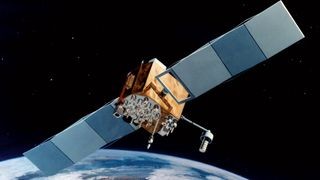Time travel, the concept of moving backward or forward to different points in time, has captivated the imagination for centuries. This beginner’s guide to time travel from CONDUCT.EDU.VN explores the science, theories, and paradoxes surrounding this fascinating subject. Delve into the physics of temporal displacement, explore theoretical methods, and understand the philosophical implications of altering the timeline, as well as the temporal mechanics involved in this complex subject.
1. The Science of Time Travel: Is It Possible?
Einstein’s theory of relativity lays the foundation for understanding the possibilities of time travel. His theories suggest that time is not constant but relative to the observer’s speed and the gravitational field they experience.
1.1 Einstein’s Relativity and Time Dilation
Einstein’s theory of special relativity states that the faster an object moves through space, the slower it moves through time. This phenomenon, known as time dilation, has been experimentally verified. For instance, atomic clocks on airplanes traveling at high speeds tick slower than those on the ground.
According to NASA, time dilation is real and measurable.
1.2 Gravitational Time Dilation
General relativity introduces another dimension to time travel: gravitational time dilation. Strong gravitational fields, like those near black holes, can significantly slow down time. Imagine an astronaut orbiting a black hole; time would pass much slower for them compared to someone on Earth.
1.3 Space-Time and the Fourth Dimension
Einstein’s theories merged space and time into a single four-dimensional continuum called space-time. In this model, time is not separate from space but intertwined with it. This concept is crucial for understanding theoretical methods of time travel, such as wormholes.
2. Theoretical Methods of Time Travel
While real time travel remains theoretical, several concepts have emerged from physics that offer potential pathways, though fraught with challenges.
2.1 Wormholes: Shortcuts Through Space-Time
Wormholes, also known as Einstein-Rosen bridges, are hypothetical tunnels connecting two different points in space-time. They are predicted by Einstein’s theory of general relativity and could potentially allow faster-than-light travel and even time travel.
2.1.1 How Wormholes Might Work
A wormhole would theoretically connect two black holes, creating a shortcut through space-time. By entering one black hole, one could theoretically emerge from another point in space-time, possibly in the past or future.
2.1.2 The Challenges of Wormholes
Maintaining a stable, traversable wormhole poses significant challenges. They would likely require exotic matter with negative mass-energy density to keep them open, something not yet observed.
2.2 Tipler Cylinder: A Rotating Time Machine
Physicist Frank Tipler proposed the idea of a Tipler cylinder, an infinitely long, super-dense cylinder that, when spun at near-light speed, could warp space-time enough to create closed timelike curves (CTCs).
2.2.1 Closed Timelike Curves (CTCs)
CTCs are theoretical paths in space-time that loop back on themselves, allowing an object to return to its own past. If a Tipler cylinder could generate CTCs, it could theoretically function as a time machine.
2.2.2 Feasibility of a Tipler Cylinder
Building a Tipler cylinder is beyond our current technological capabilities. It would require an object with infinite length and immense density, making it more of a thought experiment than a practical possibility.
2.3 Cosmic Strings: Warping Space-Time
Cosmic strings are hypothetical one-dimensional topological defects in space-time, remnants from the early universe. If two cosmic strings passed close to each other, they could theoretically warp space-time enough to allow time travel.
2.3.1 Properties of Cosmic Strings
Cosmic strings are predicted to be incredibly dense, possessing immense gravitational fields. Their interaction could create unusual space-time geometries conducive to time travel.
2.3.2 Limitations of Cosmic Strings
The existence of cosmic strings has not been confirmed, and even if they do exist, harnessing them for time travel would be exceptionally challenging.
3. Time Travel Paradoxes: Logical Impossibilities?
Time travel introduces a host of paradoxes that challenge our understanding of causality and logic.
3.1 The Grandfather Paradox
The grandfather paradox is the most well-known time travel paradox. It posits that if you travel back in time and kill your grandfather before he conceives your parent, you would never be born, thus making it impossible for you to travel back in time.
3.1.1 Potential Resolutions to the Grandfather Paradox
Several solutions have been proposed to resolve the grandfather paradox, including:
- Self-Healing Timeline: The universe may have mechanisms to prevent paradoxes from occurring.
- Multiple Timelines: Time travel might create branching timelines, where your actions in the past create a new timeline without affecting your original one.
- Novikov Self-Consistency Principle: This principle suggests that the laws of physics prevent time travelers from performing actions that would alter the past in a paradoxical way.
3.2 The Bootstrap Paradox
The bootstrap paradox involves an object or piece of information that has no origin, existing in a closed loop of time. For example, if you travel back in time and give Shakespeare the manuscript for Hamlet, where did the play originate?
3.2.1 Implications of the Bootstrap Paradox
The bootstrap paradox raises questions about the nature of causality and whether information can truly originate from nothing.
3.3 The Predestination Paradox
The predestination paradox occurs when a time traveler’s actions to prevent a future event inadvertently cause that event to happen. This creates a closed loop where the future is predetermined.
3.3.1 Examples of the Predestination Paradox
A classic example involves someone traveling back in time to prevent a disaster, only to discover that their actions were responsible for causing the disaster in the first place.
4. The Arrow of Time: Why Can’t We Go Backwards?
One of the fundamental questions about time travel is why time seems to flow in only one direction: from past to future.
4.1 Entropy and the Second Law of Thermodynamics
Entropy, a measure of disorder in a system, always increases according to the second law of thermodynamics. This law is often cited as the reason why time has an arrow, as processes tend to move from order to disorder.
4.1.1 Entropy as a Time Marker
The increase in entropy provides a way to distinguish between the past and the future. A broken vase will never spontaneously reassemble itself because that would require a decrease in entropy, violating the second law.
4.2 Psychological Perception of Time
Our perception of time is also influenced by psychological factors. We remember the past and anticipate the future, creating a subjective sense of time’s arrow.
4.2.1 Memory and Time’s Direction
Memory plays a crucial role in our understanding of time. We remember past events but cannot remember future ones, reinforcing the idea of time moving forward.
5. Time Travel in Fiction: Inspiration and Misconceptions
Time travel has been a popular theme in science fiction, inspiring many with its possibilities while also creating misconceptions about its feasibility.
5.1 Common Tropes in Time Travel Stories
Many time travel stories involve altering the past, creating alternate timelines, or encountering historical figures. These tropes have shaped public perception of time travel.
5.1.1 Alternate Timelines and Butterfly Effect
The butterfly effect, where small changes in the past have significant consequences in the future, is a common theme. Altering even minor events can lead to vastly different outcomes.
5.2 Scientific Accuracy in Time Travel Fiction
While entertaining, many time travel stories take liberties with scientific accuracy. It’s important to distinguish between fictional portrayals and actual scientific theories.
5.2.1 Misconceptions About Time Travel
Some common misconceptions include the ease with which one can alter the past without consequences or the ability to travel to any point in time with precision.
6. Stephen Hawking and the Chronology Protection Conjecture
Stephen Hawking, a renowned physicist, was skeptical about the possibility of time travel to the past. He proposed the chronology protection conjecture, suggesting that the laws of physics prevent the formation of closed timelike curves.
6.1 The Chronology Protection Conjecture Explained
Hawking believed that some unknown law of physics prevents time travel to avoid the logical paradoxes it would create.
6.1.1 Evidence Supporting the Conjecture
There is no direct evidence supporting the chronology protection conjecture, but the lack of observed time travelers could be seen as indirect support.
6.2 Hawking’s Time Traveler Party
In an amusing experiment, Hawking held a party for time travelers, announcing it only after it had occurred. The absence of any time-traveling guests was taken as a lighthearted indication that time travel may not be possible.
7. Practical Implications of Time Travel Theories
Even if time travel remains theoretical, exploring its possibilities can have practical implications for our understanding of physics and technology.
7.1 Advancements in Physics
The study of time travel theories pushes the boundaries of our knowledge in areas like general relativity, quantum mechanics, and cosmology.
7.1.1 Deeper Understanding of Space-Time
Investigating wormholes, cosmic strings, and other theoretical concepts can lead to a more profound understanding of the nature of space-time.
7.2 Technological Innovations
While time travel may not be feasible in the near future, the research and development inspired by these theories can lead to technological innovations in other fields.
7.2.1 Applications in Quantum Computing
Some of the principles underlying time travel theories, such as quantum entanglement, have applications in quantum computing.
8. The Ethics of Time Travel: Should We Even Try?
If time travel were possible, it would raise significant ethical questions about our responsibility and the potential consequences of altering the past.
8.1 The Potential for Misuse
The ability to change the past could be misused for personal gain, political manipulation, or even acts of terrorism.
8.1.1 Safeguards and Regulations
Establishing strict safeguards and regulations would be essential to prevent the misuse of time travel technology.
8.2 The Impact on Free Will
Time travel could challenge the concept of free will, as our actions in the present could be influenced by events in the future or past.
8.2.1 Philosophical Implications
The philosophical implications of time travel are vast and could reshape our understanding of causality, determinism, and human agency.
9. Time Travel and Quantum Physics
Quantum physics introduces additional complexities to the concept of time travel, particularly through phenomena like quantum entanglement and superposition.
9.1 Quantum Entanglement and Non-Locality
Quantum entanglement, where two particles become linked regardless of the distance separating them, suggests a connection that transcends space and time.
9.1.1 Potential for Quantum Time Travel
Some theories propose that quantum entanglement could be used to transmit information or even objects through time, though these ideas are highly speculative.
9.2 The Many-Worlds Interpretation
The many-worlds interpretation of quantum mechanics suggests that every quantum measurement causes the universe to split into multiple parallel universes, each representing a different outcome.
9.2.1 Time Travel to Parallel Universes
If the many-worlds interpretation is correct, time travel might involve moving between these parallel universes rather than altering our own past.
10. Future Research and Possibilities
Despite the challenges and paradoxes, research into time travel continues, pushing the boundaries of our understanding of physics and the universe.
10.1 Ongoing Experiments and Theories
Scientists are exploring various theoretical models and conducting experiments to test the limits of our understanding of time.
10.1.1 Advanced Technologies and Concepts
Future research may involve advanced technologies like quantum computers and new theoretical concepts that could revolutionize our understanding of time travel.
10.2 The Ultimate Question: Can We Really Time Travel?
The question of whether time travel is truly possible remains open. While current scientific theories suggest it is extremely challenging and possibly impossible, future discoveries could change our perspective.
10.2.1 The Ongoing Quest for Knowledge
The quest to understand time travel is part of our broader quest to understand the universe and our place within it.
Time travel, while still largely in the realm of science fiction, continues to intrigue scientists and dreamers alike. From Einstein’s theories of relativity to the mind-bending paradoxes, the exploration of time travel challenges our understanding of the universe. Whether it remains a theoretical possibility or becomes a reality, the quest to understand time travel will undoubtedly lead to new discoveries and insights.
For more information on time travel, space-time, and related topics, contact us at 100 Ethics Plaza, Guideline City, CA 90210, United States, Whatsapp: +1 (707) 555-1234, or visit our website CONDUCT.EDU.VN.
Are you fascinated by the mysteries of the universe and the possibilities of time travel? conduct.edu.vn offers a wealth of information and resources to help you explore these complex topics. Overcome the challenges of understanding complex scientific theories and ethical considerations by visiting our website for clear, comprehensive guides and resources.
FAQ About Time Travel
Here are some frequently asked questions about time travel:
-
Is time travel possible according to current scientific theories?
Current scientific theories, such as Einstein’s theory of relativity, suggest that time travel to the future is possible under certain conditions, like traveling at high speeds or experiencing strong gravitational fields. Time travel to the past is more problematic due to paradoxes and the lack of known mechanisms. -
What is the grandfather paradox?
The grandfather paradox is a classic time travel paradox that asks what would happen if you traveled back in time and killed your own grandfather before he conceived your parent. If you succeeded, you would never be born, making it impossible for you to travel back in time in the first place. -
What is a wormhole, and how could it be used for time travel?
A wormhole is a hypothetical tunnel connecting two different points in space-time. Some theories suggest that wormholes could be used as shortcuts through space and time, potentially allowing for faster-than-light travel and even time travel if one end of the wormhole is moved in a specific way. -
What is the Tipler cylinder?
The Tipler cylinder is a theoretical construct proposed by physicist Frank Tipler. It is an infinitely long, super-dense cylinder that, when spun at near-light speed, could warp space-time enough to create closed timelike curves, potentially allowing for time travel. -
What is the arrow of time?
The arrow of time refers to the concept that time has a direction, moving from past to future. This is often linked to the second law of thermodynamics, which states that entropy (disorder) in a closed system always increases over time. -
What is the chronology protection conjecture?
The chronology protection conjecture is a hypothesis proposed by Stephen Hawking, suggesting that the laws of physics prevent the formation of closed timelike curves and thus make time travel to the past impossible. -
What is quantum entanglement, and how might it relate to time travel?
Quantum entanglement is a phenomenon in which two particles become linked regardless of the distance separating them. Some theories propose that quantum entanglement could be used to transmit information or even objects through time, though these ideas are highly speculative. -
What are the ethical considerations of time travel?
The ethical considerations of time travel include the potential for misuse, such as altering the past for personal gain or political manipulation, and the impact on free will and causality. -
What is the many-worlds interpretation of quantum mechanics, and how does it relate to time travel?
The many-worlds interpretation of quantum mechanics suggests that every quantum measurement causes the universe to split into multiple parallel universes, each representing a different outcome. In this view, time travel might involve moving between these parallel universes rather than altering our own past. -
What is the Novikov self-consistency principle?
The Novikov self-consistency principle states that if time travel is possible, the laws of physics prevent time travelers from performing actions that would alter the past in a paradoxical way. In other words, the universe would conspire to ensure that events remain consistent.


